Published
- 02:00 am
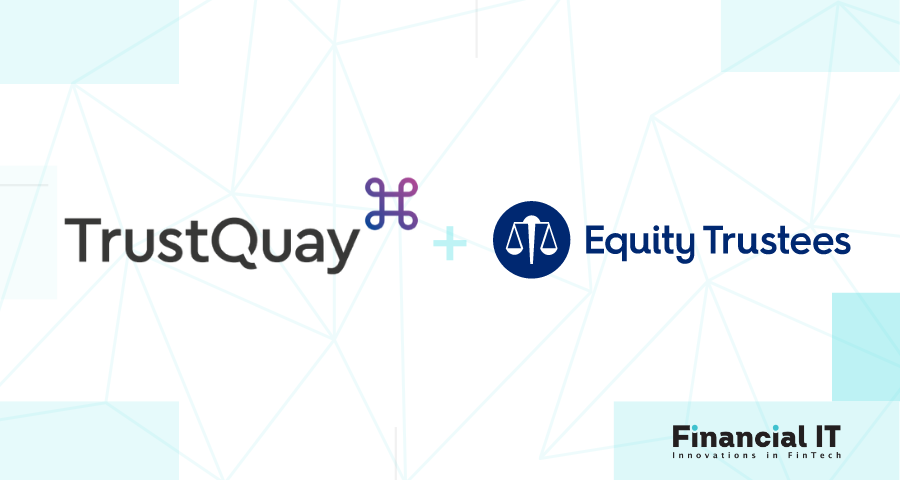
TrustQuay, the leading technology provider to the corporate services, trust and fund administration markets, has today announced it has signed a technology agreement with Equity Trustees, Australia’s leading specialist independent trustee company.
Under the deal, Equity Trustees will centralise its Trustee and Wealth Services (TWS) business – which includes charitable and community trusts, and executor and trustee services for individuals and families – onto TrustQuay NavOne to provide a fully integrated technology solution across its Australian offices.
Equity Trustees will also adopt TrustQuay Portal which will digitalise the end-client experience and allow its TWS clients to access information on their trusts, funds and services from anywhere, anytime and on any device.
Ian Westley, Executive General Manager, Trustee and Wealth Services at Equity Trustees, comments: “Partnering with TrustQuay will allow us to bring all services in this division of our personal fiduciary business onto a single centralised system to support our growth.
“We are also excited about implementing TrustQuay’s front-to-back-office platform including their client Portal which will significantly improve the ability of clients to engage with us where and when they choose with complete access to their information in a controlled and secure way.”
Keith Hale, Executive Chairman of TrustQuay, comments: “We are delighted to work with Equity Trustees, one of the oldest and largest trustee companies in Australia. We look forward to collaborating closely with them to further automate their TWS business and digitalise interaction with their clients and beneficiaries.
“Equity Trustees is showing great leadership in the industry with the investment in the digital transformation of their business.”
Related News
- 08:00 am
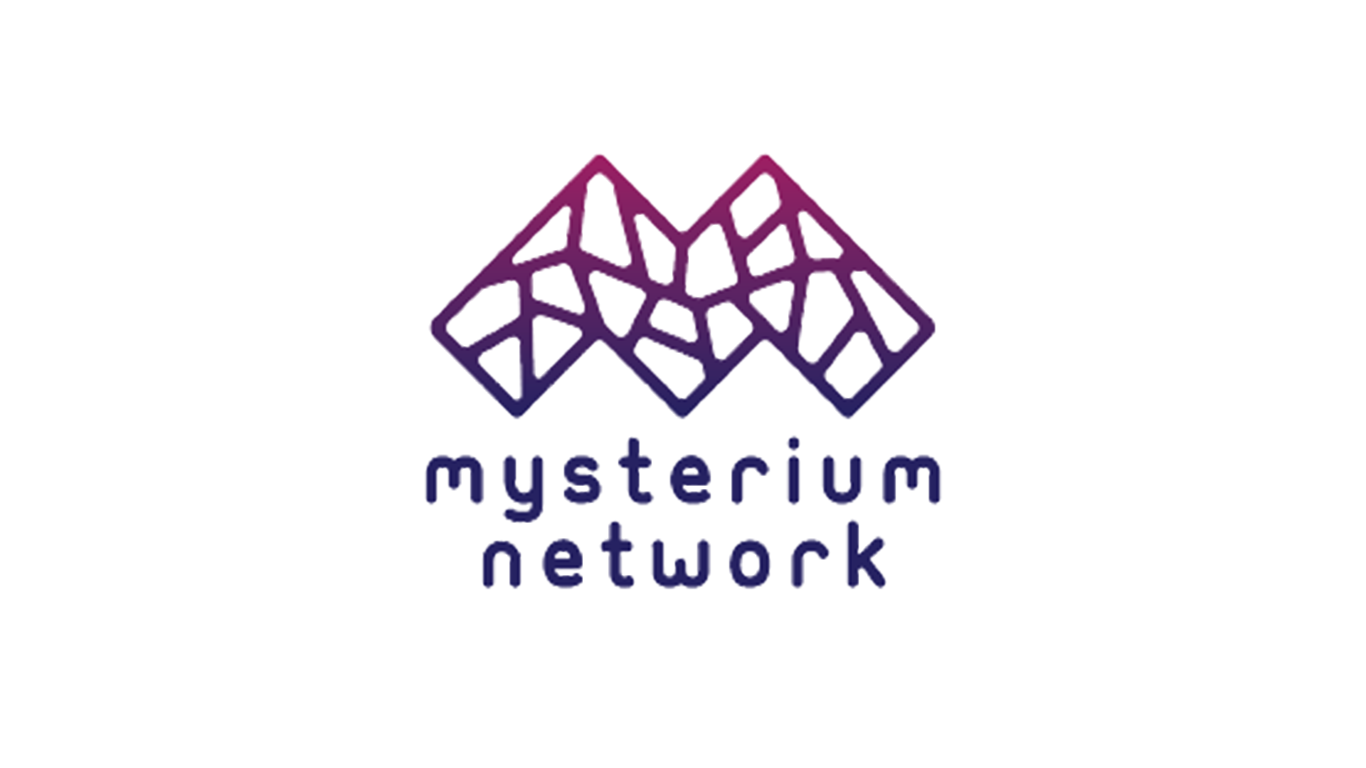
Major cryptocurrency exchange MEXC Global has listed $MYST token by Mysterium Network, the Swiss-based Web 3.0 company challenging the $30 billion VPN industry with its next-generation anonymity network.
Trading of the MYST-USDT pairs opens at 12:00 p.m. UTC on Thursday, July 14, 2022.
The VPN market is estimated to reach more than $77 billion by 2026. With increasing censorship, shutdowns and surveillance online, over a quarter of the world's internet users depend on a VPN for daily internet access. Most recently in Sudan, authorities cut off access to the internet to disrupt anti-government protests being held nationwide.
Internet disruptions also come at a great cost to the global economy. In 2022, a total of over 19,000 hours of downtime cost the worldwide economy more than $10 billion.
"These kinds of internet shutdowns are becoming common practice by governments around the world. Saldy, they are increasing in number, rather than slowing down. While there are some great initiatives and campaigns to call out these abuses of power, including from the UN High Commissioner for Human Rights, we need to focus on building internet infrastructure and tools that are resistant to shutdowns and censorship," says Donatas Grinkas, Head of Mysterium Network.
Mysterium's open-source web infrastructure is making the internet borderless and accessible for all. The network is made up of tens of thousands of exit nodes spread across more than 130 countries. These nodes are run by everyday people using devices such as computers and Raspberry Pis to share their IP addresses to users and businesses around the world in exchange for MYST, a utility token native to the network. There are already thousands of nodes around the world earning passive income daily, providing a secure line of communication and access to the open internet.
This peer-to-peer marketplace lays the groundwork for all kinds of services to be built, including the project's flagship product, the Mysterium VPN, available for Android, Windows, Mac and Linux (iOS in 2022). Developers and entrepreneurs can build encrypted, censorship-resistant tools using the open APIs, while businesses can plug into the network via the B2B service, Lavafy. Launched in 2020, Lavafy is already being used by five VPN clients.
"Regular VPNs are just a band-aid fix for what is a deeply flawed infrastructural problem, which is why we're trying to build a solution that fixes things on the deeper protocol and networking level. Peer-to-peer networks like ours allow users everywhere to easily share web resources with each other, such as storage, computing power and now internet access. The goal is to ensure information flows around the web freely, without any unethical blocks from self-interested corporations and governments," says Grinkas.
Related News
- 09:00 am
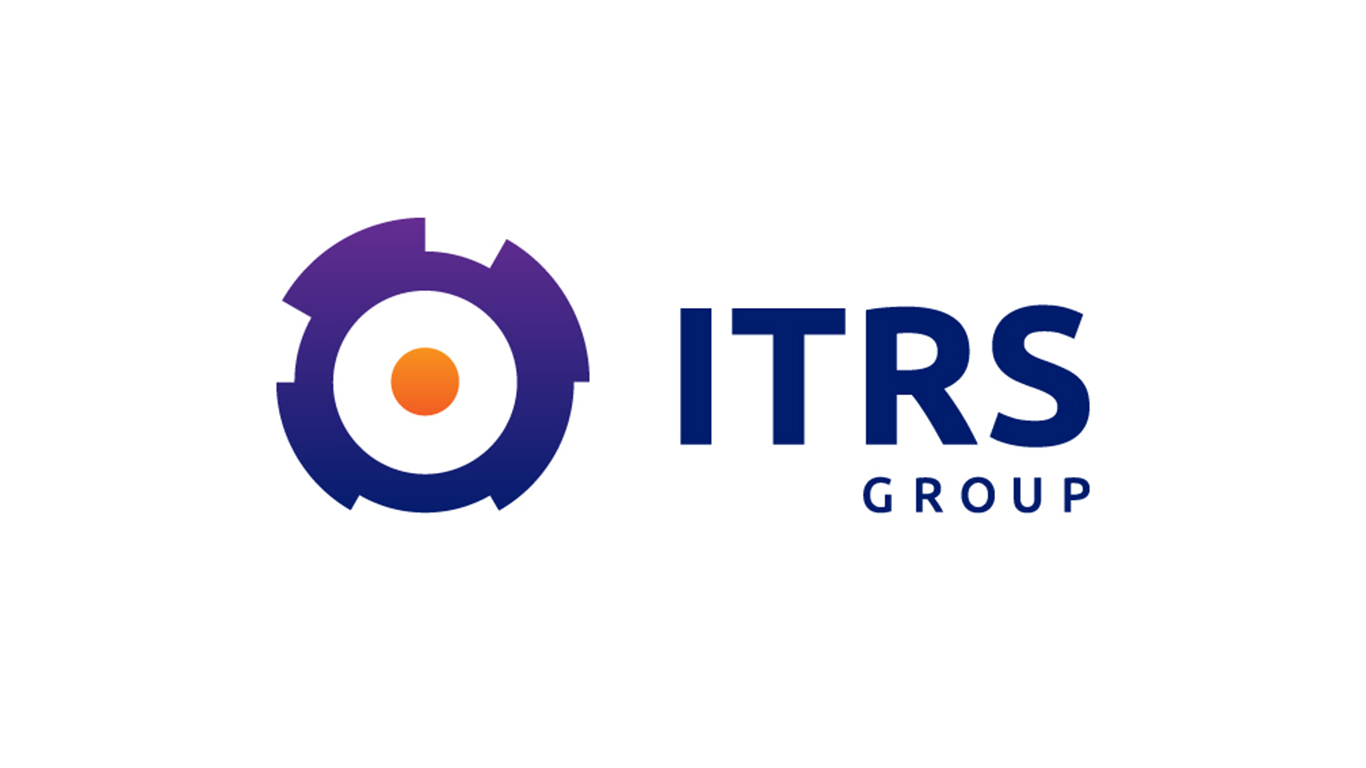
Understanding of the importance of operational resilience has been on the rise in the last few years – particularly following the implementation of the FCA’s new operational resilience laws. But according to leading software provider ITRS Group, if firms employ effective operational risk measures, then the need for operational resilience will be largely diminished. As such, in tandem with an operational resilience strategy, firms should also ensure a robust operational risk approach – in an overarching strategy ITRS Group is dubbing O2RM.
The proliferation of operational resilience is a vital development, with financial services firms more dependent than ever on increasingly complex, exponentially expanding digital systems post-pandemic. In fact, research by ITRS Group shows that over 80% of financial institutions say their IT environments have changed more in the last 12 months than in their company’s lifespan.
But, according to ITRS Group, while widespread recognition of the importance of operational resilience is vital – and has been a long time coming – it fails to consider other important risk management practices. Operational resilience focuses heavily on what the user is experiencing (and thus reporting to the regulator), encompassing factors such as downtime and business continuity – which is undoubtedly crucial.
However, in their focus on this, many firms are losing sight of the bigger picture. No matter how resilient firms are, there are often unexpected external threats and risks beyond a firm’s control. If they develop a more holistic view that encompasses a focus on potential external risks and their ability to adapt in the face of threats, then there will be much less pressure on their operational resilience strategy to perform flawlessly.
Guy Warren, CEO at ITRS Group, comments: “This failure to view operational resilience and risk management in tandem is hugely problematic for businesses, customers and the sector at large, as one simply isn’t possible without the other. Think of it like a game of rugby. You’re almost always going to get tackled and take a fall. From a resilience perspective, you can learn to fall better to minimise impact and get back up as quickly as possible. But you should also definitely be focusing on trying to avoid getting hit in the first place.”
To support firms through their compliance journey, ITRS Group has provided guidance for financial institutions to incorporate better risk management strategies into their operational practices:
- Ensure robust IT architectural design that takes into consideration all potential failure scenarios thought through and mitigated. This will enable firms to anticipate failures before they actually happen, reducing the failure-disaster recovery cycle.
- Thorough testing of non-functional requirements, including performance and failure scenarios – just functional testing to see if the software is able to process correctly is not enough.
- Risk-assessed change management can be informed by either a strong change risk register or risk change management solutions, which correlate, analyse and deliver actionable IT operations insights from a variety of sources. According to Gartner, 85% of all performance incidents can be traced back to changes – so by capturing risky changes, firms can detect and manage these incidents before they happen.
- 360 degree, full-stack monitoring with an active monitoring tool which can take action to correct incidents before they become problems. Automated monitoring solutions can give firms a full picture of any given IT estate, from legacy to cloud-based systems. This will give them access to information that allows them to mitigate operational, reputational and financial risk, shorten issue detection and resolution time, and comply with operational resilience
Related News

Sam Holding
Head of International at SparkPost
Data is used daily in business in all its forms and is a vital asset for financial institutions, whether it be used for security purposes, customer records, o see more
- 07:00 am
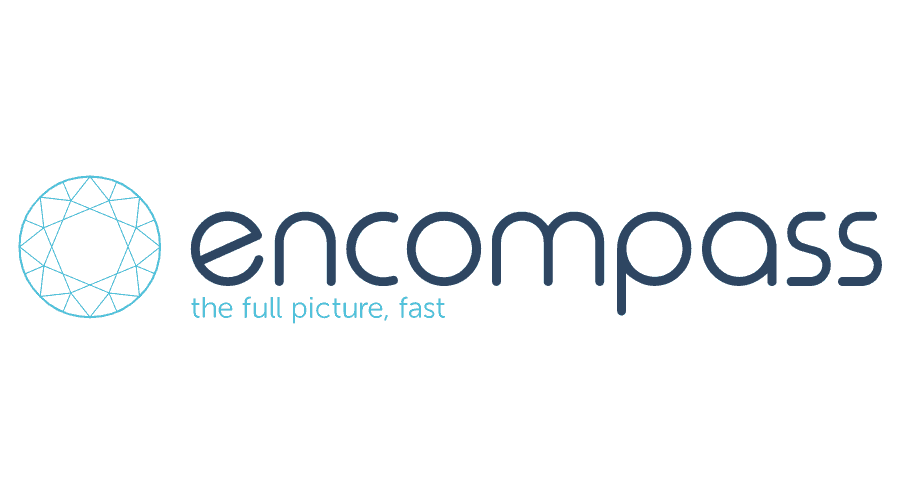
Nikhil Rathi, Chief Executive of the Financial Conduct Authority (FCA), outlined technology and data as key to tackling financial fraud in the UK in a speech delivered at the Peterson Institute of International Economics this week.
Rathi proclaimed that the FCA has “invested heavily in data and technology” to help scan for fraud, with over 100,000 websites scanned for fraud each day.
Rathi highlighted the investment, stating: “We are investing in our data and tech platforms to improve how we use analytics and insights to support our decision-making. This is helping us to take a more proactive stance and, crucially, spot harm and intervene more quickly and broadly.
As part of its data strategy, the FCA has moved its physical data centre to a cloud-based service, developed a data lake, implemented new analytics tools, and created a new decision hub, to help work with large, complex data sets more effectively.
So far in 2022, the FCA has recruited 500 new staff, including a number of data scientists, and staff from tech-based backgrounds, and are set to welcome their largest graduate cohort ever.
Dr Henry Balani, Global Head of Industry and Regulatory Affairs for Encompass Corporation, commented:
“The FCA’s commitment to evolving and developing the regulatory system, and its own operational platform, to anticipate and tackle threats should be welcomed. With a sharp rise in financial crime, banks and other financial services organisations require the very latest support to operate effectively and improve standards of compliance and reporting.”
“Boosting digital capabilities must be key to this effort. The time is now when it comes to investing in the latest automated technologies to improve AML and KYC checks. These solutions give organisations a complete view of their customer base and activity, and the tools to the act, ultimately ensuring continued compliance.”
Related News
- 06:00 am
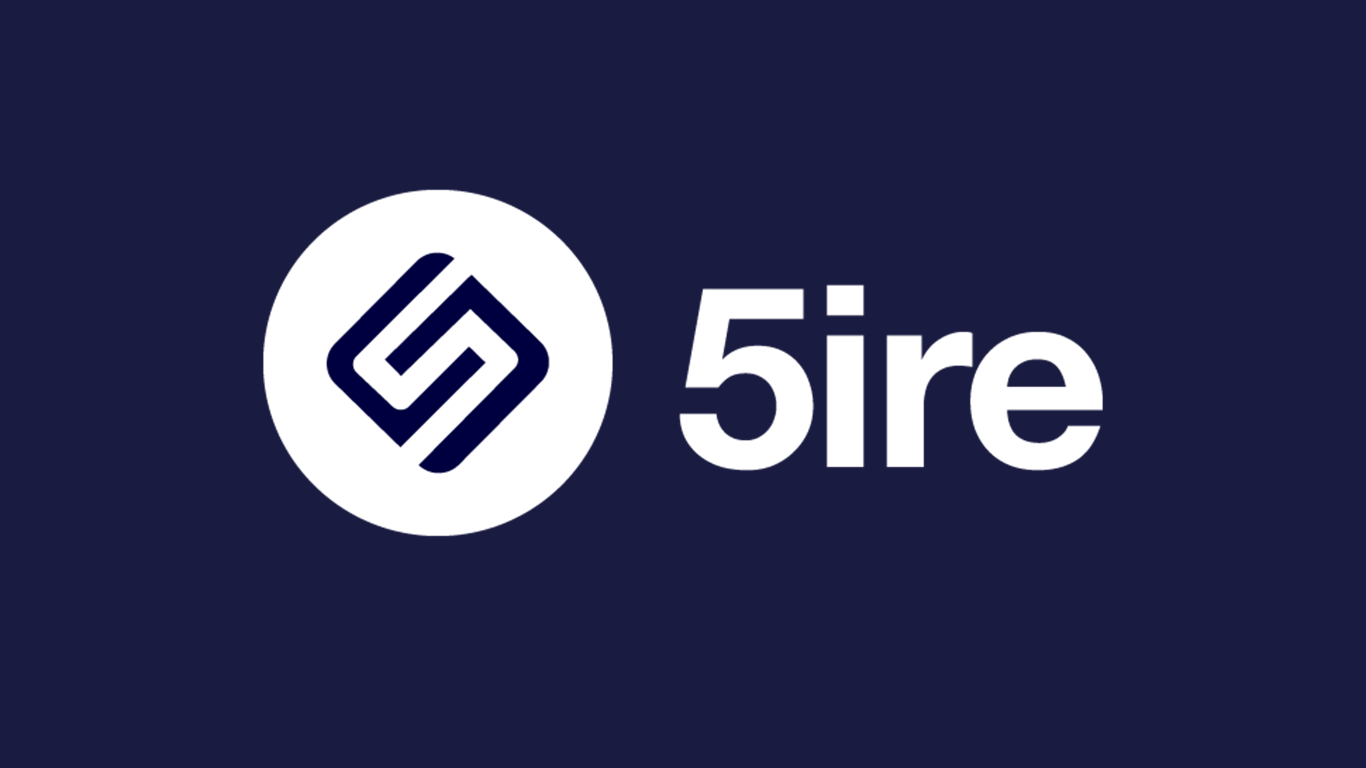
5ire, a fifth-generation level 1 blockchain network and the world’s first and only sustainable blockchain, today announced that it has raised $100 million in Series A funding from UK-based conglomerate SRAM & MRAM. This investment makes 5ire the fastest growing blockchain unicorn in India and the only sustainable blockchain unicorn in the world, valued at $1.5 billion. 5ire was founded by Indian-origin entrepreneurs, Pratik Gauri and Prateek Dwivedi, along with web3 financier Vilma Mattila, in August 2021.
5ire raised a funding of $21 million in its seed round at a valuation of $110 million with participation from both private and institutional investors like Alphabit, Marshland Capital, Launchpool Labs, Moonrock Capital, and many others investors.
The funds raised will be used for business expansion and extending 5ire’s footprint across three continents including Asia, North America and Europe, with India as the hub of operations and core area of focus. 5ire will continue to invest in strengthening its blockchain further and work towards ensuring this decentralised technology benefits a larger base globally. Additionally, 5ire aims to hire the best talent in the industry across functions like a product, engineering, marketing etc.
Speaking on the occasion, Dr Sailesh Lachu Hiranandani, Chairman of the SRAM & MRAM group, said, “We have great confidence in moving forward with investments in sustainable technologies. As a scientist, I have always believed in finding better ways to do things, and 5ire is committed to finding solutions for the 17 UN Sustainability Development Goals. We are assured in the abilities of the leadership team at 5ire and wish them all the very best.”
Pratik Gauri, CEO and Founder of 5ire said, “We are on a mission to embed sustainability into blockchain and shift the current paradigm from ‘for-profit’ to ‘for-benefit’. The 5ire team has worked round-the-clock to develop a platform that combines both technology and processes for the benefit of humankind. Becoming the world’s first and only sustainable unicorn born out of India, in just 11 months, is testimony that we are on the right path. We are humbled by the trust shown in 5ire by the SRAM & MRAM group and thrilled to find a partner who also wants to promote the transition of the world from the 4th Industrial Revolution to the 5th Industrial Revolution.”
5ire is a blockchain ecosystem that brings forth Sustainability, Technology & Innovation to build the 5th industrial revolution (5IR). The mission of the 5ire ecosystem is to embed the for-benefit paradigm at the heart of the blockchain, by highly incentivizing practices that align with the United Nations Sustainable Development Goals (SDGs), therefore facilitating the transition from the 4IR to 5IR. 5ire empowers decentralized autonomous organizations (DAOs) and working groups to help accelerate the implementation of the UN’s 17 SDG goals. It assures openness, unity of purpose, and inclusivity. Thus, shaping the ethics of business and collaborations toward sustainability while providing a cross-chain environment as well as advanced governance and rewarding mechanisms for participants.
Related News
- 07:00 am
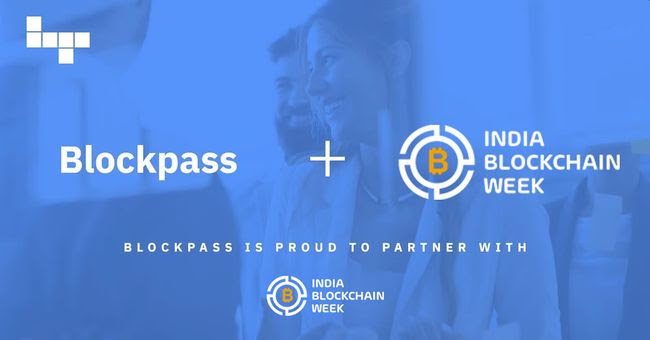
Blockpass, the Safe Network for Crypto, is announcing a partnership with BlockOn, the worldwide blockchain venture builder & firm. As part of this move, Blockpass will provide information, updates and coverage of BlockOn's events, and BlockOn has invited Blockpass to speak at its India Blockchain Week event, which covers a whole host of themes from NFTs to Governments to Start-Ups over its 7 days.
BlockOn incubates and accelerates projects which promote a better ecosystem for cryptocurrency and blockchain companies by leveraging its network, infrastructure, visibility and funds. BlockOn guides innovators in the development of their ideas and road maps accelerate their development and customer acquisition efforts, connects with and secures investment and partnerships, and gains visibility through online and in-person community-building efforts. In addition, it also hosts blockchain events in the ASEAN region and beyond. Through its efforts, BlockOn is committed to revolutionizing the world and professionalizing the blockchain space.
Blockpass is a digital identity verification provider which provides a one-click compliance gateway to financial services and other regulated industries. Through Blockpass, users can create, store, and manage a data-secure digital identity that can be used for an entire ecosystem of services, token purchases and access to regulated industries. For businesses and merchants, Blockpass is a comprehensive KYC & AML SaaS that requires no integration and no setup cost. You can set up a service in minutes, test the service for free and start verifying and onboarding users. Currently, with more than one million verified user identity profiles, Blockpass facilitates instant onboarding, and thousands of companies have taken advantage of this opportunity to get access to users with reusable digital identity profiles.
"Working with those who set out to help others is always rewarding, so partnering with BlockOn is a real pleasure for us," said Blockpass CEO Adam Vaziri. "It's been a tough couple of years for events thanks to COVID, but now things are beginning to return we're delighted to be invited to such a significant event as IBW to speak about Blockpass and the importance of regulatory compliance."
"BlockOn is a pioneer in the crypto and blockchain space since 2017 when Bitcoin was not forked. Basic KYC & AML standards were never discussed at Crypto Conferences. Blockpass has a SaaS solution that requires no integration and no setup cost to start verifying and onboarding users. Government Agencies in India will be happy to see Blockpass which can help regulators to see advanced compliance standards in the crypto industry," said Siddharth Pandya, Head of Partnerships at BlockOn.
Blockpass has grown significantly in size and use since its inception, both in the number and range of users and organizations it has partnered with and the scope of its work. Blockpass continues to develop its digital identity protocol with updates and additions to improve the compliance experience. The existential need for DeFi projects to be regulatory compliant and the recent integrations have led to a surge in interest for Blockpass' On-chain KYC(TM) solution which promises to change the way blockchains enable compliance. Through its recent work with Animoca Brands, Blockpass is developing the ability to provide KYC where the delivery of the verification result is provably sent and shown on a blockchain without sharing the underlying data. This represents a significant step toward the future Blockpass hopes to bring about where identity verification can be proved without revealing any personal information at all.
Related News
- 05:00 am
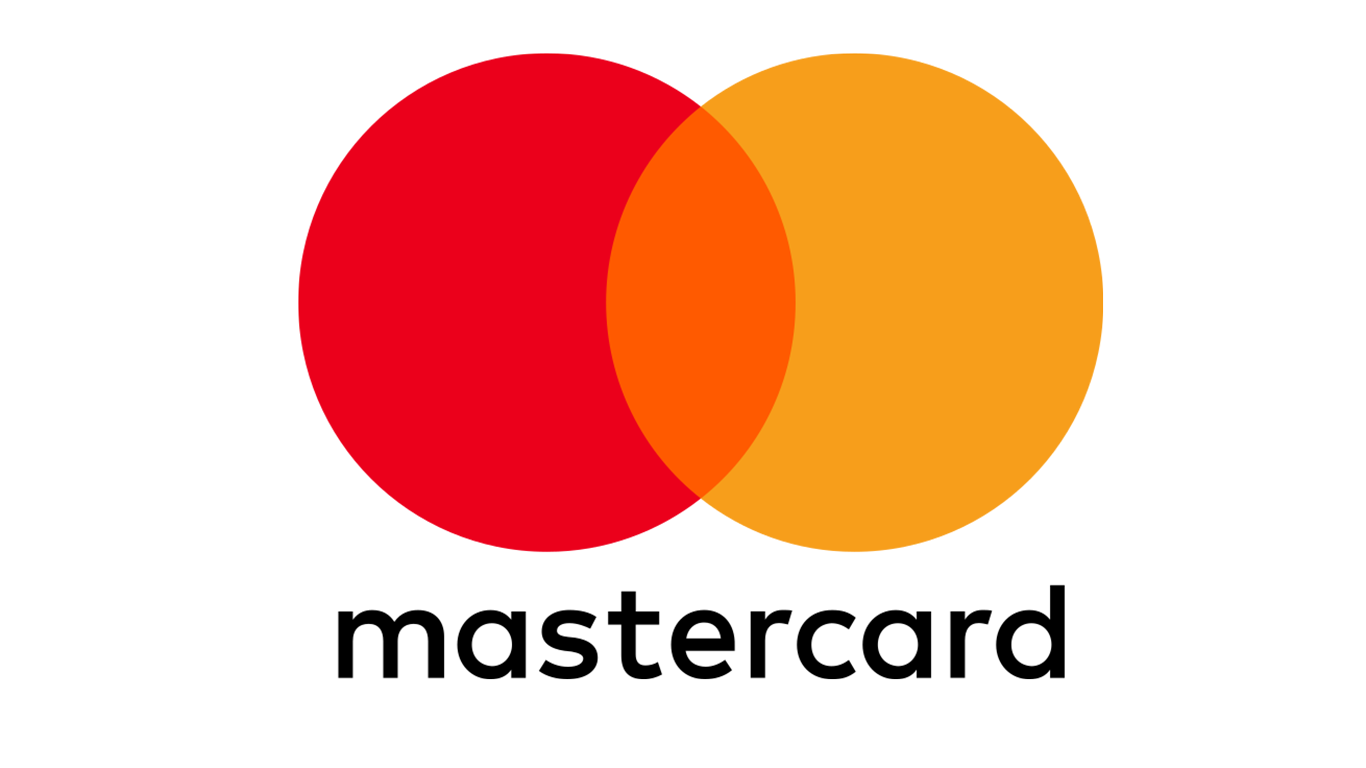
Mastercard today announced an expansion of its Engage partner network to include its open banking services, offering customers easy access to several technology partners that can quickly build and deploy open banking solutions for payments and lending decisioning at scale. According to Mastercard’s 2022 New Payment Index, 83% of consumers globally use digital tools for at least one financial task, and more than half use technology for five or more tasks. With the rapid adoption of open banking (i.e., consumer-permissioned data access) and digital tools across financial services experiences, Mastercard will work with technology partners to spur innovation through access to its open banking platform, from lending to payments to financial management.
The initial partners to join the Mastercard Engage program for open banking include Dwolla, FinTech Automation, i2c, Link Financial Technology, LoanPro, Nova Credit, Provenir, Synctera, Tern and Usio, Inc. Through this new program, these providers will partner with Mastercard open banking to offer services to their clients. Other benefits are fewer contracts, faster access to customers, data security and access, and overall flexibility to better leverage Mastercard’s robust open banking services.
Mastercard has a long-standing track record of working with technology and fintech partners to build the future of financial services and enable more choices for consumers. With three billion cardholders and 93 million merchants, the more partners Mastercard has, the more powerful the flywheel of our network becomes. Since 2018, nearly 150 partners around the world have joined the Mastercard Engage program. In the last year alone, nearly 100 Engage partners have helped their customers deploy new, innovative solutions on more than 250 million accounts with Mastercard digital services, including all-digital consumer payments experiences, tokenization, digital wallet, and mobile POS solutions and now open banking.
“The partners joining Mastercard Engage are leading the deployment of open banking solutions that are designed with security at the centre and will help to meet consumers’ financial needs and enable choice,” said Jess Turner, executive vice president, Global Open Banking and API at Mastercard. “Together we can enable innovation that will increase financial inclusion and expand access to digital services across the globe.”
Open banking through Mastercard and its technology partners allows businesses to establish direct consumer-permissioned connections with their customers’ bank accounts. Through these consumer-permissioned connections, businesses can verify accounts for payments and payouts, and check balances to reduce payment failures, and cut fraud by confirming bank account ownership. This has improved the payment experience for both the businesses and their customers. Similarly, for lending, borrowers can directly permission data and insights through the ecosystem to support their lending decisioning processes. This also means a better lending experience for both the lender and borrower, as it provides financial insights, expanded data sets not available through paper submissions, increased financial inclusion, and a simplified experience.
The Engage program provides two new direct implementation options for partners — Partner Linked and Partner Direct. These methods provide a seamless and secure implementation of consumer-permissioned data through Mastercard’s open banking services and can be used together or separately, depending on the preference of the financial technology provider.
As an Engage technology partner, additional benefits include:
- Go-to-market collaboration – Helps technology providers sell and deploy their solutions in new markets and find new customers.
- Promotion – Partners are featured on Mastercard’s portal to gain visibility and credibility with all Mastercard customers.
- Training & insights – Mastercard Academy gives partners access to a series of product and solution training sessions. They can also participate in regional forums with insights from Mastercard and its partners around value and product propositions as well as market priorities.
- Technical support – Partners gain access to a network of global and regional technical engineers that can help them address technical questions.
Mastercard Engage expanded last year to support customers in deploying Digital First experiences that meet consumer demand for more digital experiences and provide more choices in payment options. The program includes partners that offer various components and integration capabilities across all business verticals, serving banks, merchants, lenders and fintech customers. Continuing the momentum from the launch of the Start Path Open Banking program last month, the expansion of Engage further demonstrates Mastercard’s dedication to supporting fintechs that are enabling consumers to securely access and manage their data.
Some Mastercard open banking platform services are delivered through its wholly-owned subsidiary, Finicity. Open banking services through the Engage is a global program, additional partners across markets will be announced in the coming months.
Visit the Mastercard Engage website for more information.
“Data is a crucial element of the Open Banking movement across the globe,” said Dwolla President and COO, Dave Glaser. “At Dwolla, we’re focused on powering innovations with sophisticated account-to-account payment solutions and our partnership with Mastercard complements our open banking strategies to help increase the capabilities of the payment experience to our network of businesses.”
“As we move from the information to the digital age, how we move information is as important as the data itself,” said David Park, CEO of Fintech Automation. “Mastercard and FinTech Automation are key to that movement.”
“We’re delighted to be among the first Mastercard Engage open banking network partners to enable providers to expand consumer access to credit by unlocking permissioned based use of open banking data,” said Ava Kelly, Chief Product Officer at i2c Inc.
“Link is on a mission to help businesses significantly reduce payment costs. We are thrilled to engage in a strategic partnership with Mastercard,” said Eric Shoykhet, Co-Founder at Link Financial Technologies, Inc. “Turbocharged by Mastercard open banking platform enabling access to consumer permissioned data, Link offers cost-effective alternate payment solutions.”
"LoanPro is honoured to be a Mastercard Engage partner. As the leading API first loan management and servicing technology, our customers depend on and trust our loan management platform to monitor, optimize and defend their extended capital. We view the Mastercard engage program as a promising channel to accelerate technology partnerships, expand our capability to new customers, and introduce new capabilities to our existing client base," said Rhett Roberts CEO/Co-Founder LoanPro
"Open banking has tremendous potential to better empower consumers underserved by the traditional credit system. This partnership enables lenders to seamlessly access new risk insights for more predictive underwriting while providing consumers more control and transparency to manage their financial lives," says Chris Hansen, Head of Channels & Alliances at Nova Credit. "Together, we are taking another step forward in accelerating the inevitable shift toward a more inclusive financial system."
“We’re excited to help organizations embrace open banking and propel faster innovation by expanding our relationship with Mastercard,” said Carol Hamilton, Senior Vice President, Global Solutions for Provenir.“Provenir powers risk decisioning processes across identity, credit and fraud. Through the unique combination of Provenir’s data marketplace, purpose-built machine learning models and on-demand decisioning, Provenir provides a cohesive risk ecosystem that enables organizations to make smarter decisions across the entire customer lifecycle while elevating fraud prevention and financial inclusion. Organizations choose this platform to accelerate the launch of products such as Buy Now Pay Later (BNPL), small and mid-size enterprise lending, automotive financing, and more.”
“Synctera was founded to help builders everywhere challenge the traditional developer landscape and make building the future of FinTech fast and simple," said Peter Hazlehurst, co-founder and CEO at Synctera. "Expanding Mastercard's Engage program is a catalyst for better FinTech creation and adoption that will help people get better access to better financial services. We're proud to work alongside Mastercard to change the way America banks, invests, and spends money.”
"We are thrilled to expand our partnership with Mastercard and take full advantage of their Open Banking product suite. Their unmatched tools, support, and technology are essential to Tern delivering best-in-class fintech solutions worldwide," said Brion Bonkowski, Chief Executive Officer at Tern.
“Usio has been a Mastercard partner for several years and we are thrilled to continue to grow our relationship by participating in their Engage open banking program. Our relationship is based on our ability to provide flawless execution and timely response to client requirements that both preserve and enhance Mastercard’s reputation for outstanding service,” said Louis Hoch, President and CEO at Usio. “As a member of the Engage partner network, our goal is to build on this foundation by supporting the Mastercard open banking solutions with electronic payments technology that helps meet consumers’ financial needs and enable customer choice in a secure, reliable manner.”
Related News
- 02:00 am
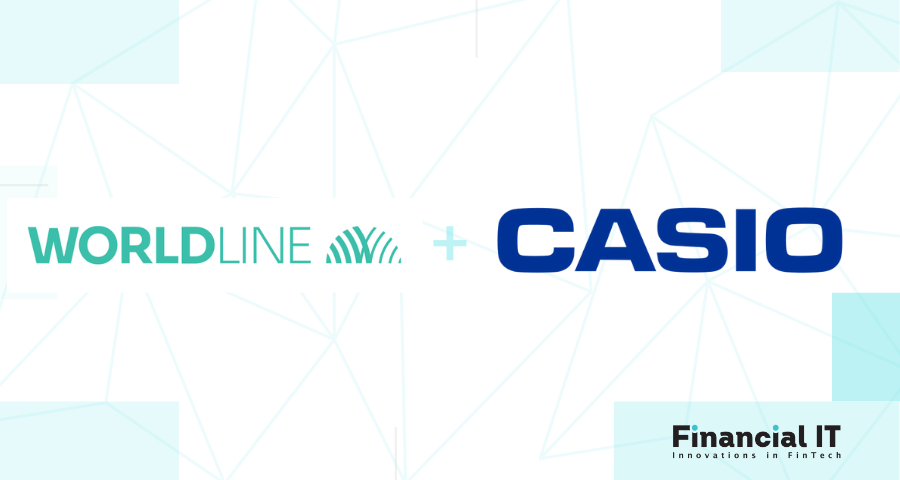
Worldline, a global leader in payment services, and Casio Computer announce they have agreed on a strategic business alliance to facilitate card payments and cashless shopping in Japan, a market with huge potential to overturn its conservative retail landscape.
The strategic business alliance between Worldline and Casio, which went live recently in Japan, aims to revolutionise the currently rather cumbersome payment acceptance ecosystem. The setup also includes Vesca, a leading local provider of payment solutions and network service provider (NSP), and is targeted to the mass market, mainly SME merchants across Japan. In this unique partnership, Worldline provides transaction processing and leverages the footprint, scale and technology of its global payment processing facilities, while Casio is the trusted and reliable front-end for merchants, having led the cash register market in Japan for 19 years, with cashless services part of its offering; and Vesca is the technical enabler that acts as the acceptance layer in Japan.
This arrangement benefits merchants in Japan, particularly SMEs and small chains, and their customers. Credit card acceptance will no longer be a strain for these retail and service businesses who will benefit from speedy onboarding and more competitive costs while keeping Casio as their trusted single point of contact for all check-out topics. Therefore, Worldline, Casio and Vesca will be able to successfully address the challenges posed by the Japanese ecosystem when it comes to card payments – cash-dominated consumer behaviours and cumbersome lengthy onboarding processes.
As a team, the three companies are ideally placed to address the requirements of the Japanese market and its strong and distinctive local characteristics. For example, a strong relationship typically binds together local merchants and their electronic cash register (ECR) provider or integrator, which in Japan, gatekeeps the checkout and payments process.
Vincent Roland, Head of Merchant Services at Worldline, said: “We are extremely proud to be working with a prestigious brand such as Casio and we are confident this partnership is the right choice for our presence in the Japanese market. Our offering will booster card payments in a market with huge potential.”
Shigenori Fujii, Senior General Manager, System Business Unit at Casio, added: “Worldline is the leading payments solutions provider in Europe, and it only made sense to collaborate with them as we aim to enlarge our offering for checkout payments and cashless services in Japan. Their professionalism and expertise are unparalleled. We want to develop this partnership further.”
Building relationships with key local actors and delivering offerings using the latest payment technology are two core components of Worldline’s growth strategy when it comes to penetrating new markets. In this instance, the partnership brings together Worldline and Casio, both leading and highly respected operators in their respective fields, with shared values and objectives.
Related News

Hilary Smyth-Allen
BPFS Sector & Modern Services Lead at Greater Birmingham & Solihull Local Enterprise Partnership
The UK created a record 29 see more









